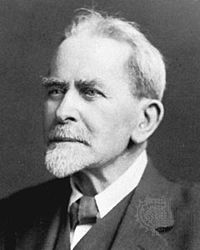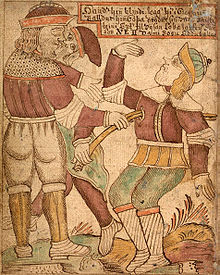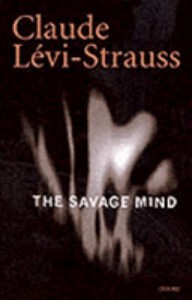Sir James George Frazer
Revisiting the Rhetoric of Criticism/The Human Sciences through Northrop Frye’s Student Essays
The following is a continuation of a previous post and the discussion of Frye’s student essays and their relevance to his later criticism.
In his essay on “The Jewish Background of the Old Testament: An Essay in Historical Apocalyptic,’ the young Northrop Frye expresses his dissatisfaction with ‘the philosophy of history’ he finds in one of the foundational texts of the twentieth century, Sir James Frazer’s The Golden Bough. Frye recoils from ‘the Macaulay-like tone of the supercilious Victorian contemplating the wasteful and gloomy pageant of history’ (NFSE 140). He writes as if his fury with the author has slowly been mounting in the course of long and comprehensive reading although, as Robert Denham points out, the initial source of his frustration is with the very explicit statement of his views that Frazer makes in the Preface and final chapter to the two volumes of Balder the Beautiful, first published in 1913.In the mid nineteen-thirties, when Frye wrote, Frazer’s confident and progressive tone must have seemed risible, after a major war and a beginning economic crisis that saw out the decade, only to be relieved by a second burst of international hostilities. In this discussion, I am less concerned with Frazer’s philosophy of history –which I shall discuss very briefly—than with the rhetoric of these two chapters. Frazer’s ‘philosophy of history’ is fairly disposable. But his rhetoric raises a hornet’s nest that illuminates not just the young Frye’s thought, but also the strains and conflicts that would afflict the study of the humanities arguably for the rest of the twentieth-century and would be important for Frye’s own reshaping of the field. In some of this discussion, then, I take a little detour from direct confrontation with Frye in order to look more closely at these pages of Frazer.
Balder’s death, 18th century Icelandic manuscript
Although the contents of Frazer’s study cast the spell over modern literature discussed in John Vickery’s The Literary Impact of the Golden Bough (1976), its intellectual authority has always been shakier. In 1959, in a CBC broadcast on Frazer that located him as one of ‘the architects of modern thought,” Frye’s sense of his limitations was fairly marked: “I would not say Frazer was a great thinker’ (91).* What he did, Frye argues, was to provide a ‘a kind of grammar of the human imagination’ (89). When professional anthropologists, fresh from a reading of La Pensee Sauvage, revisited Frazer, their verdicts were much more severe. Edmund Leach dismissed Frazer as a recovering Calvinist, unaware of his infirmities, while Mary Douglas thought that Frazer bolstered the myth of the other, the primitive society shaped in in every way the opposite of our complacent, comfortable middle class world. Familiar with his primitives only through the protected sanctum of the library, Frazer bestowed on an emerging field of study an opposition that threatened to cripple it as one of ‘the human sciences ‘. For Frazer effectively divided the world into two—the primitive into the civilized, even as he purported to be writing about humanity.
This overconfidence, Douglas judged, meant that Frazer ignored the need shared by so-called primitive societies and their modern successors to find order in the patterns of their lives and the diverse, but equally legitimate, strategies both devised for conferring that order. Who were we, she asked, to see primitive styles of thinking and behavior as retarded variants of our own? Who were we to think that we could read the minds of people whose fortunes we knew only from mediated reports of their collective behavior made by temporary visitors?
All these reservations and many more have been sounded many times since the nineteen-sixties, when Leach and Douglas were in the process of reimagining anthropology for British readers. They need to be kept in mind when we return to Frazer’s Preface and conclusion, although there is plenty to keep us occupied in these chapters themselves. Frazer’s belief that the value of his book relies in the facts it collects rests on his own article of faith that ‘While theories are transitory, a record of facts has a permanent value’ (xi). He offers his volumes as ‘a chronicle of customs and beliefs that may retain its utility when my theories are as obsolete as the customs and beliefs themselves may be” (xi). With his appeal to utility and his readiness to sink the value of his book in the support of the facts, it is evident that Frazer projects himself for his readers as a kind of Gradgrind. One important aspect of this self-presentation is to promote himself as a member of a progressive, modernizing culture committed to the supersession of the extravagancies of ancient prejudice through the weight of the facts it quarries from all sources. As a young idealistic type of thinker, Frye might have found some of this attractive. But, as we shall see, there was much to dispute in this for an early twentieth-century Canadian.
There seems to be no foundation for Douglas’s charge that Frazer saw an impassible gulf between savage and civilzed mentality, at least on the evidence of these two chapters. Rather, Frazer held to a completely different set of doubtful generalizations about the path from savagery to civilization, as the comments below clearly disclose:
The truth seems to be that to this day the peasant remains a pagan and savage at heart; his civilization is merely a veneer which the hard knocks of life soon abrade, exposing the solid core of paganism and savagery below. The danger created by a bottomless layer of ignorance and superstition is lessened, not only by the progressive decrease of the rural as compared with the urban population in modern states; for I believe it will be found that the artisans who congregate in towns are far less retentive of primitive modes of thought than their rustic brethren. In every age cities have been the centers and as it were the lighthouses from which ideas radiate into the surrounding darkness (and below ix).
At this point the progressive, Macaulayean Frazer shifts into a gear more appropriate to Frazer the last torch bearer of the Scottish enlightenment, proud of the rationalizing energies of city life and shuddering at the memories of rural credulousness and closed-mindedness. In no way is the savage a relic of the past; every rural enclave, as figures as different from Thomas Hardy, Robert Louis Stevenson, and Karl Marx have seen and dramatized, serves as the cradle for irrational mysteries.
If we can step back and entertain the fantasy that we are Northrop Frye for a second, we can imagine that the student of Emmanuel must have had some reservations about such comments at this time. As a student of religion in the precincts of a city whose rationale as a social form was reason, was Frye condemned to obsolescence? Was he not also acquainted with a very different paradigm for city life available through Spengler, who saw the collective life of reason and engineering fostered in the city as harboring its own flaws and looked uneasily to its eventual extinction? Would Frye be content to ratify the brutal division between city and country to which Frazer’s urbanity consigned modern culture? And could anything genuinely enlightening for the direction of humanity arrive through the collection of ever denser swarms of facts?


